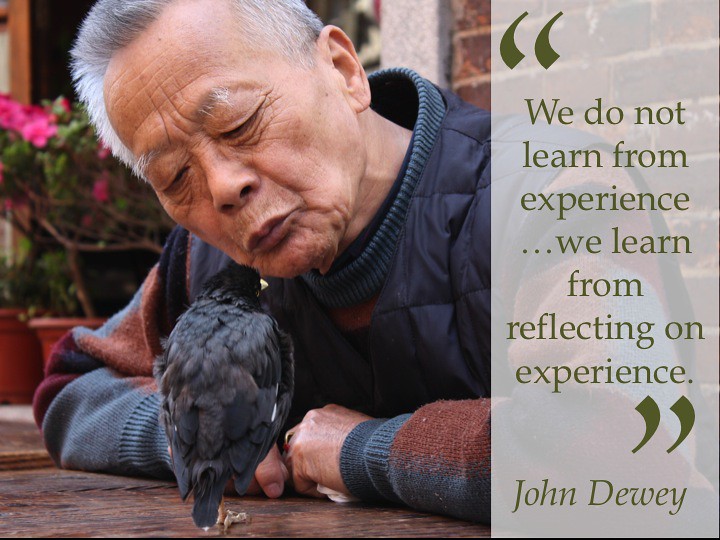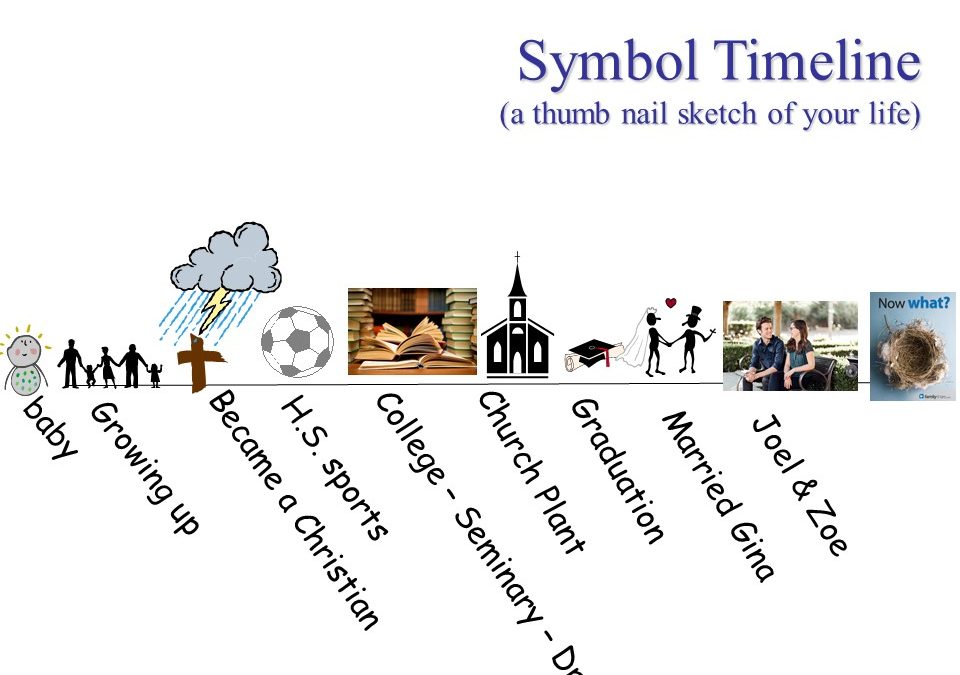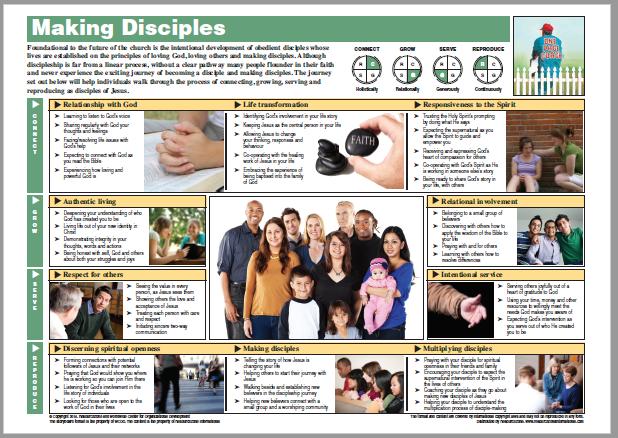
by Gary Reinecke | Sep 22, 2020 | Disciplemaking, Uncategorized |
Leaders, pastors and church planters are facing challenges like never before. Some are being hit from both sides of THE DEBATE. The debate might vary from one moment to the next; but today, at unprecedented levels, leaders are having their values tested in ways like never before. A common theme that I’ve heard in conversations with several leaders, is the issue of in-person vs. remote gatherings. Most of you reading this blog have been at the center of that debate. This is just one of several hot topics today. There are others that I could mention that are just as volatile or moreso, but that is not the point I am trying to make.
The point is, leaders are dealing with issues that were not even on their radar 6-9 months ago. I do not want to suggest to know the right answer. What I do know is that leaders are seeking authentic, responsible and collaborative support to clarify, strengthen and hold to their values. One leader I spoke to recently shared (and I summarize):
The upheaval in our world, and that I am facing right now, has undercut the rhythms of life and ministry…
…for him AND I might add, for so many others in ministry just like him.
It is encouraging to see places where leaders are seeking innovative solutions to address challenging circumstances impacting disciplemaking. Clusters of pastors and church planters gathering to encourage, support and brainstorm solutions. And new ways of doing discipleship are emerging from these encounters.
A few weeks ago I was speaking with my colleague, Micah Dodson of Thrive Church Planting. And we discussed the question, what can we do? That is how we came up with the Leadership Collective – MISSIONAL DISCIPLESHIP TIMELINE.
It is our response to help a select group of leaders, pastors and church planters support and encourage one another to clarify their values. Plain and simple. We are using the SYMBOL TIMELINE as the tool to help leaders process these together and individually beginning October 2 from 10-10:55am PST.
Here is the plan moving forward. We will meet for 4 sessions over ZOOM on Fridays from 10-10:55am PST. Below is the flow of the 4 sessions:
- October 2: ORIENTATION TO THE MISSIONAL DISCIPLESHIP SYMBOL TIMELINE
- October 9: TRANSITIONS & BOUNDARIES
- October 16: SHARING YOUR TIMELINE
- October 23: WHERE DO WE GO FROM HERE?
Suggested Reading: We are purposefully NOT requiring any resource costs for this exercise. However, if you would like to learn more about the timeline – especially Transitions & Boundaries, let us suggest a wonderful companion book entitled: “STUCK! Navigating the Transition of Life and Leadership”, by Terry Walling.
We will be accepting participants until October 1 @ 5pm PST. Please CLICK HERE to let us know you are interested in participating by entering your:
- Name
- E-mail address
- Paste MISSIONAL DISCIPLESHIP TIMELINE (in the Message box).
We are excited to get started. We hope you can join us. And bring a friend.
Gary Reinecke & Micah Dodson

by Gary Reinecke | Sep 11, 2020 | Disciplemaking, Leader Development |
Why is it important to know your values?
- Values serve as guide rails for leaders and organizations
- Values provide guidelines for appropriate behavior
- Values accelerate personal development
I like to say that values are the things leaders argue for when the values are challenged. Vision, as others suggest is…
Vision is a picture of the preferred future from God’s perspective.
A leader without a clear set of values is like a ship without a rudder. The ship is afloat, but not going anywhere in particular.
Do you know your values?
Take a moment to reflect on those things that are important to you.
Perhaps it is taking a walk or hike, getting to know your neighbors or spending a day at the beach with your immediate family. Maybe it is reading a good book, making stuff with your hands or cooking. Whatever those things are – you will find a way to do those activities you value.
During challenging seasons, it is natural to examine and discover what is important to us, often as a function of those things no longer being available or accessible because of extenuating circumstances. Travel, time with friends, sporting events, concerts, creating, connecting and establishing relationships – the list goes on and our priorities are distilled down to the essentials when life twists and turns. If we allow it, our human resilience rises up and we find ways to create opportunities to fulfill our deepest desires and highest priorities.
What are the values of a disciple coach?
Let me suggest that disciple coaches value certain behaviors. Disciple coaches understand the importance of connecting with pre-Christians, helping new disciples grow in their faith, challenge disciples to move from “consumer” to “contributor” to serve members of their community and reproduce themselves into the lives of other new followers of Christ.
Here are those values again, taken from the Making Disciples Storyboard:
- CONNECT
- GROW
- SERVE
- REPRODUCE
How can you clarify your values?
I was talking with a young, emerging leader recently who stated his desire to identify his values. Those things that are near to his heart, as a part of his maturing process moving into adulthood. This is what we did.
I asked him to take a look back and find the consistent themes that emerged from positive and negative experiences throughout his life:
- Influential people
- Circumstances that shaped him
- Events that encouraged new ways of think and behaving
From that list I asked him to identify lessons he learned. One lesson was – “be true to myself”.
From those lessons, he identified values. For instance – from “be true to myself”, he arrived at Authenticity.
Personal Timeline Exercise
In my final year of seminary I came encountered a class on leadership development and was intrigued by topic. The paradigm was developed by Dr. Robert Clinton in his dissertation entitled
“Leadership Emergence Patterns” and identified 6 stages of a leader’s development based on case studies of over 300 biblical and historical leaders from his research. That course was transformational for me as I learned about the challenges leader’s face as they encounter boundaries that either stifle development or challenge leader’s to move forward.
We were instructed to go through an exhaustive and lengthy recollection of our leadership journey to-date. As I journaled my story the professor, Dr. Gordon Klenck, instructed us to lay-out our life in a timeline, identify the various “process items” Clinton describes in his material and roughly construct the phases of development. To give you an idea how long ago this was, I still have my final paper which was typed on a word processor.
Since then, Clinton has written a more concise explanation of his work in “The Making of a Leader”. I have taken many individuals and groups through this exercise using a resource that popularized the process in a weekend retreat setting called “Focused Living” by Terry Walling. A wonderful companion book entitled “STUCK! Navigating the Transition of Life and Leadership” is also available, by Terry Walling, and introduces the timeline in a user-friendly style.
For those that want to explore your values but want a simplified version of the Personal Timeline process, I would suggest a “Symbol Timeline”. We initially used this exercise as a primer for the more expanded version of the Personal Timeline -see above. It will serve the purpose of identifying your values. Follow the steps below; but instead of listing the people, events and circumstances – draw them out like in the image at the top of this blog.
Remember, the goal of the Symbol Timeline is to use symbols to illustrate the major milestones in your life and distill the lessons you learned, so that you can identify your values.
5 STEPS TO CREATE YOUR SYMBOL TIMELINE
STEP 1
Take a look back and find the consistent themes that emerge from positive and negative: influential people in your life, circumstances that shaped you, events that encouraged new ways of think and behaving. That lightening bolt in my timeline above represents a health issue that altered the trajectory of my life.
STEP 2
Draw symbols to represent the most important items in your development as a leader. See that soccer ball in the image above – guess what my favorite sport was growing up?
STEP 3
Identify lessons learned. One lesson I learned was based on a statemnt my mom made every morning when I left the house with my brothers and sister – “remember who you are and who you represent”.
STEP 4
Identify values. For instance – from “remember who you are and who you represent”, I arrived at Integrity.
STEP 5
To take this to a more pragmatic context, let’s compare and contrast your values to that of a disciple coach. Here is a brief list of those values taken from the Making Disciples Storyboard;
- CONNECT
- GROW
- SERVE
- REPRODUCE
If you would like to participate in a cohort that will be going through this process together please join the Leadership Collective for Missional Discipleship online learning community – CLICK HERE. This will be the first time me and Micah Dodson of Thrive Church Planting have offered this FREE cohort to help you synthesize your values. The process officially begins October 1 and runs for 4 weeks. We will be limiting the group to 15 participants; sign-ups are on a first come, first serve basis.
By joining the Leadership Collective for Missional Discipleship online learning community you are NOT obligated to participate in the year-long process we outlined in last week’s blog – CLICK HERE. However, this serves as a clarifying, stand-alone exercise and can be a tremendous pre-cursor to the Leadership Collective for Missional Discipleship.
If you are interested in participating in the FREE Leadership Collective for Missional Discipleship online learning community – CLICK HERE.

by Gary Reinecke | Sep 4, 2020 | Disciplemaking |
Have you been listening to the topic of conversations among leaders in the local church lately? Some have to do with what is going on in society (pandemic, moving online, racial justice). Other conversations get granular as tensions rise within our government. Many leaders in pastoral and church planting ministries that I speak to express the stress, challenges and difficult times we are all facing. These are very real – see Six Reasons Your Pastor Is About to Quit by Tom Rainer.
Most encouraging though are the interactions I have with leaders about the unprecedented opportunity they see, as difficult as it is at this pivotal moment in time, to move the mission of Jesus forward. I would venture to say that if we could capture this moment and raise the bar on discipleship, apprentices of Jesus will have the capacity to overcome many of the social injustices we face in our society. How can we take advantage of this unique situation and re-introduce the commission Jesus entrusted us with His disciples: to make disciples, who make disciples and who in turn, make disciples.
The conversation today, revolves around discipleship – how can we make more and better disciples in our current cultural moment, given the opportunities certain restrictions have imposed on our ministries?
I was speaking to a regional leader just this week and he mentioned that the 30-40 churches he overseas are asking this very question. Because of the restrictions placed on large and mid-size group gatherings, congregations that do not have small group ministries have been forced to create smaller, more manageable, disciplemaking groups. Those that are unable to pivot quickly and do so will cease to exist. This is the harsh reality of the season we find ourselves. However, those that are able to see the wisdom and leverage this opportunity are innovating new ways to make disciples.
Here are two practical insights that he shared:
- The strongest churches are focused on small home groups.
- The younger families are participating at a higher level via Zoom groups.
For you, disciplemaking may have been the primary driver for your ministry. For other leaders, this pivotal moment in time has afforded you the opportunity to reflect. You are are discovering for the first time or rediscovering the essence of ministry and the absolute necessity of disciplemaking. This gives me hope, motivation and energy for the future!
Last week I did a quick fly-by on the Leadership Collective for Missional Discipleship that is designed to help you:
- Discover ways to incorporate disciple coach values in your life and ministry.
- Connect with like-minded leaders on this same journey.in meaningful ways.
- Create a comprehensive discipleship pathway that suits your context.
- Equip other disciples coaches on your team to Connect, Grow, Serve and Reproduce.
One of the reasons Micah Dodson and I are compelled to offer this now is because of the conversations we are having with leaders about this very issue. Below is more information with a call to action at the very bottom of the page.
We have established a by-invitation-only, private network for you to LEARN about the Missional Discipleship Collective, CONNECT with like-minded leaders on a similar journey and INTERACT on relevant issues. We pray that you will consider this important issue. Will you take the next step and join the network?
MISSIONAL DISCIPLESHIP
Kick-off Event: Nov 15-17, 2020
SCHEDULE:
LARGE GROUP – limited to 15 participants
2-day Retreat – La Jolla, CA: November 15-17, 2020
- Bring your spouse to the 2-day, kick-off event in La Jolla, CA – at no additional cost, except for travel.
Three ZOOM sessions as a full group for 2-hours each.
- Session #1: February 8, 2021
- Session #2: May 3, 2021
- Session #3: July 26, 2021
All times are: Mondays @ 9am PST (10am MST/11am CST/noon EST)
SMALL GROUP
Seven, 60-minute Triad Sessions
LEARN MORE BY JOINING OUR
“BY-INVITATION-ONLY” COMMUNITY BY CLICKING THIS LINK.
InFocus will do everything within our ability to meet and exceed regulations so people are safe, remain healthy and have a peace of mind. If we are unable to secure the meeting facilities needed by no later than February 1 we will move the live, face-to-face event in La Jolla to a virtual Zoom event. We will communicate the adjusted cost and the modified agenda with all interested participants.

by Gary Reinecke | Aug 25, 2020 | Disciplemaking, Uncategorized |
One of the realizations of this season we find ourselves in is discovering what is important to each of us.
For example, certain things we just are not able to do now like going to sporting events, the movie theater and even hanging out with friends and family that are not under the same roof. There are some things we are still able to do.
Reflect on those things that are important to you
Perhaps it is taking a walk or hike, getting to know your neighbors or spending a day at the beach with your immediate family. Maybe it is reading a good book, making stuff with your hands or cooking. Whatever those things are – many of us have found a way to do those activities we truly value, despite the threat of a pandemic.
One activity I love doing is riding my mountain-bike. You will find me and my wife on the trails in back of our home, three mornings a week from 6-8:30am. This is the time when we feel safe to ride given the low numbers of people on the trails and cooler weather. If you are interested – I’ve uploaded two, 25-second videos for your viewing entertainment below:
- Gary climbing a gnarly hill, 65′ change in elevation – CLICK HERE
- Gary dropping down a technical gully, 73′ change in elevation – CLICK HERE. The photo at the top of this blog is the cut I sustained when I misjudged the final drop earlier this season. It was not pretty…
BTW – in case you are wondering, my wife, Gina was the videographer. To give you an idea of her riding capacity – she was so far ahead of me that she was able to unload her bike, get positioned on the trail with her iPhone and record me riding. I want to be like her some day:>)
Let me suggest that disciple coaches value certain behaviors. Even during a pandemic, disciple coaches understand the importance of the intentional effort required to connect with pre-Christian, helping new disciples grow in their faith, coaching disciples to move from being a consumer to serve others and reproduce into the lives of other yet-to-be disciples of Christ. Here are those values again, taken from the Making Disciples Storyboard:
CONNECT
GROW
SERVE
REPRODUCE
- Interested in learning more about the values of a disciple coach?
- Would you like to explore being part of a cohort with like-minded leaders?
Missional Discipleship
Kick-off Event: Nov 15-17, 2020
- Discover ways to incorporate disciple coach values in your life and ministry.
- Connect with like-minded leaders on this same journey.in meaningful ways.
- Create a comprehensive discipleship pathway that suits your context.
- Equip other disciples coaches on your team to Connect, Grow, Serve and Reproduce.
- Bring your spouse to the 2-day, kick-off event in La Jolla, CA – at no additional cost, except for travel.
Learn more by joining our
“by-invitation-only” community by clicking THIS LINK.



by Gary Reinecke | Aug 20, 2020 | Disciplemaking, Uncategorized |
Previously, I alluded to our Leadership Collective 2000 and presented 4 Basic Building Blocks of Disciplemaking – CLICK HERE. Since then I have been working with Glenn Spyksma to brainstorm reflection questions under each of the Disciple-Making Building Blocks (DMbb).
Disciplemaking is a spiritual process with very real actionable steps. I use the term, Disciple Coach for the disciplemaker because it is more descriptive of the role of the disciple who makes disciples in our world today. Here are three benefits of Building Block #4 – Accountability.
The Power of Strategic Accountability:
- Accountability helps the Disciple Coach keep the main thing, the main thing.
- Accountability helps the Disciple Coach learn from real experience.
- Accountability helps the Disciple Coach in-motion.
Following are the reflection questions that you can use as a Disciple Coach to have a discipleship cycle (not a process)
Reflection Questions
DMbb #4 Accountability
- With God
- What are you learning about God?
- How do you know when you are doing the things God has called you to do as a disciple coach?
- With yourself with grace
- How am I prioritizing life events as a disciple coach?
- What am I not doing that I know I should be doing?
- With those God has entrusted to you
- What do you do to process set-backs with a disciple when their good intentions don’t produce the intended fruit?
- What progress are you observing with the disciples you are coaching on a monthly, quarterly and annual basis?
- How do you celebrate a disciple’s progress when they take action?
- With trusted mentors
- What do you do to process missed opportunities as a disciple coach?
- How do you celebrate your progress when you take action as a disciple coach?
A resources to help Disciple Coaches stay in motion
Making Disciples Coaching Guide: this includes a brief explanation of each of the locations on the “map” accompanied by reflection questions for use by the Disciple Coach OR used in the context of a coaching relationship (see the explanation below) – CLICK HERE.
The best way to use the 4 DMbb
- Meet with a disciple coach or a group of disciple coaches.
- Use the 4 DMbb as an assessment – help the disciple coach identify which one they need to focus on today
- Depending on which of the four the disciple coach identifies, help them further reflect on the specific aspect they need to focus – see expanded list CLICK HERE
That will set the stage for a spiritual discernment process to determine the disciple coach’s next steps. Use the reflection questions above, in addition to the questions we present under the remaining DMbb presented in future blogs to facilitate the conversation. Help the disciple coach is to stay in motion by taking the next step in their journey to make disciples that make disciples.



by Gary Reinecke | Aug 12, 2020 | Disciplemaking |
Previously, I alluded to our Leadership Collective 2000 and presented 4 Basic Building Blocks of Disciplemaking – CLICK HERE. Since then I have been working with Glenn Spyksma to brainstorm reflection questions under each of the Disciple-Making Building Blocks (DMbb).
Disciplemaking is a spiritual process with very real actionable steps. I use the term, Disciple Coach for the disciplemaker because it is more descriptive of the role of the disciple who makes disciples in our world today. Here are three assumptions that we make when we speak about disciplemaking. Here are three distinctions between Building Block #3 Have a discipleship cycle – and a process.
What is the difference between a “cycle” vs. a “process”?
- A cycle is ongoing and continuous vs. a process – it has a clear start and end point.
- A cycle prioritizes the need of the disciple vs. a process – it is linear with a pre-determined agenda.
- A cycle relies on obedience vs. a process – it relies on content and acquiring knowledge.
Following are the reflection questions that you can use as a Disciple Coach to have a discipleship cycle (not a process)
Reflection Questions
DMbb #3 Have a discipleship cycle (not a process)
- Develop a comprehensive disciplemaking cycle that you believe in and will use:
- Who have you shared your disciplemaking cycle with, in the last 90 days?
- If you don’t have anyone that you have shared your disciplemaking cycle with recently, what is getting in the way?
- What changes do you need to make to your disciplemaking cycle?
- Develop a comprehensive disciplemaking cycle that is reproducible and incorporates the three steps of multiplication:
STEP 2
“You do and I watch”
STEP 3
“You do and some else watches”
-
- How transferable is your cycle?
- Who have you discipled that is using your cycle with other disciple coaches?
- What elements need to be refined further or added to make your cycle more transferable?
3 resources to help you design your own disciplemaking cycle:
- Watch Pastor Russ Sidders share his Disciplemaking Cycle – CLICK HERE.
- Disciplemaking Storyboard – CLICK HERE.
- Disciplemaking Coaching Guide – CLICK HERE.
The best way to use the 4 DMbb
- Meet with a disciple coach or a group of disciple coaches.
- Use the 4 DMbb as an assessment – help the disciple coach identify which one they need to focus on today
- Depending on which of the four the disciple coach identifies, help them further reflect on the specific aspect they need to focus – see expanded list CLICK HERE
That will set the stage for a spiritual discernment process to determine the disciple coach’s next steps. Use the reflection questions above, in addition to the questions we present under the remaining DMbb presented in future blogs to facilitate the conversation. Help the disciple coach is to stay in motion by taking the next step in their journey to make disciples that make disciples.











